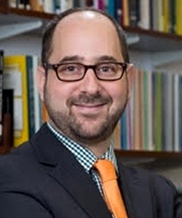Game Design Principles for Teaching Ethics: Insights from Designer Board Games
Interactive media and games increasingly pervade and shape our society. In addition to their dominant roles in entertainment, videogames play growing roles in education, arts, science and health. These talks bring together a diverse set of experts to provide interdisciplinary perspectives on these media regarding their history, technologies, scholarly research, industry, artistic value and potential future. As the speakers and title suggest, the series also provides a topical lens for the diverse aspects of our lives.
Join us TUESDAY’S From January 10th until March 14th from 12pm-1pm in the McMurtry Art & Art History Building, Oshman Presentation Space, Room 102.
Can’t make it to the talk, but have a question for Tomer? Submit your question HERE and it will be asked. By submitting your question, you’re allowing mediaX to use and record your submission.
Also listed as one-unit course BIOE196. For more information contact Ingmar@stanford.edu
Never Miss An Event; Join Our Email Community
Presenter

Tomer Perry, Game Design Principles for Teaching Ethics: Insights from Designer Board Games. One of the current projects at the Edmond J. Safra Center for Ethics aims to improve ethics pedagogy at Harvard. As part of this project, Tomer Perry has worked on developing simulations that ground abstract ethical theories in particular situations, bridging the gap between ethics curriculum and the decisions students might face when they graduate. In this presentation, Perry discusses the broader idea behind the project: using game design principles to enhance teaching by making engaging and immersive home assignments and classroom activities. For inspiration, Perry turns to the rich (and rapidly growing) world of designer board games, reviewing game mechanics that can transfer from tabletop game design to effective pedagogy.
Tomer Perry is a research associate and postdoctoral fellow at the Edmond J. Safra Center for Ethics at Harvard University, studying political theory. He graduated from Stanford in 2016 with a Ph.D in political science and his areas of interest include democratic theory and global justice. His research reformulates democracy in light of its declining popularity, and in order to adjust democracy to a globalized world. At the Center for Ethics he's working on a pedagogy project that brings together teachers of ethics from across the Harvard schools.